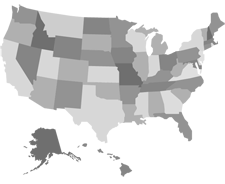Electronic Payment Consumer Rights
Your Rights on Electronic Payment of Payday LoansBoth federal law and the loan industry give consumers the right to stop payday lenders from using electronic means to take money from a bank account for payment. However, this does not cause the debts to be settled. This simply stops the repeated finance charges and bounced check fees that consumers incur while they are working on a repayment plan.
Loans with renewals built-in: Some online payday loans have loan renewals built in to the contract, but these lenders are not allowed to require you to pay electronically according to the Electronic Fund Transfer Act (EFTA at 15 U.S.C. 1693a(9)). This law gives you the right to stop payment on any withdrawal and also to revoke authorization for withdrawals by a lender in the future. This action allows the bank to impose a stop payment fee.
In order to stop individual withdrawals on loans that have built-in renewals, you need to notify your bank, either orally or in writing, at least three business days before the transfer is scheduled to take place. You may be required by your bank to give written notice of your desire to stop payment within two weeks of giving oral notice. If you do not give written notice, your stop payment order will be canceled after the two-week period.
When you notify the bank that you no longer wish the debt authorization to be valid, the bank will need to block not only the next withdrawal by the payday lender, but also all payments that the online lender may request in the future.
To stop the withdrawals in the future, you will need to notify the payday lender in writing that a debit on your account is no longer authorized. Be sure to make and keep copies of this notification letter and give one to your bank.
Your bank may want you to confirm that you have sent notification to the lender that the automatic debits are no longer authorized. Notify your bank in writing within fourteen days that you give them oral notice so your bank will not honor any other withdrawals from your account. Carefully review your bank statements to check for any unauthorized withdrawals from your account.
One-time payment loans: Federal law does not give you the right to stop payment when you make an agreement that includes a one-time debit transaction. However, your lender does have to comply with the rules of the private organizations that give you that right.
Online payday lenders must disclose that consumers have the right to revoke authorization to debit from their bank accounts. To access this right, you must notify both the bank and the lender three days before the debit is supposed to happen. The lender is required to tell you how to stop the authorization. Read all the fine print of the agreement to find instructions on how to stop electronic access to your bank account.
The rules of the payday lending industry require you to also contact the lender stating that you are revoking the authorization, and then you must notify your bank. You may find it difficult to contact your online lender if you did not keep any copies of the documents about your loan, or if your lender does not post its contact information. The contracts governing online payday loans usually require three days notice before the due date on the loan if you are going to revoke this authorization.
Rights vs. Reality: While you do have the rights mentioned above, you may find that exercising these rights is difficult. Banks often set up their stop payment systems so they can only identify the dollar amount and the check number, but not the name of the person cashing the check. Also, some contracts for online payday loans allow the loan to be broken up into several separate debits, so the bank may not be able to locate the transaction that you want to have stopped. Also, if you have already authorized other withdrawals in the same dollar amount, the bank may stop the wrong one.
State Guides
- Alabama
- Alaska
- Arizona
- Arkansas
- California
- Colorado
- Connecticut
- Delaware
- District of Columbia
- Florida
- Georgia
- Hawaii
- Idaho
- Illinois
- Indiana
- Iowa
- Kansas
- Kentucky
- Louisiana
- Maine
- Maryland
- Massachusetts
- Michigan
- Minnesota
- Mississippi
- Missouri
- Montana
- Nebraska
- Nevada
- New Hampshire
- New Jersey
- New Mexico
- New York
- North Carolina
- North Dakota
- Ohio
- Oklahoma
- Oregon
- Pennsylvania
- Rhode Island
- South Carolina
- South Dakota
- Tennessee
- Texas
- Utah
- Vermont
- Virginia
- Washington
- West Virginia
- Wisconsin
- Wyoming



